Togo election: Will Gnassingbe dynasty retain power?
- Published
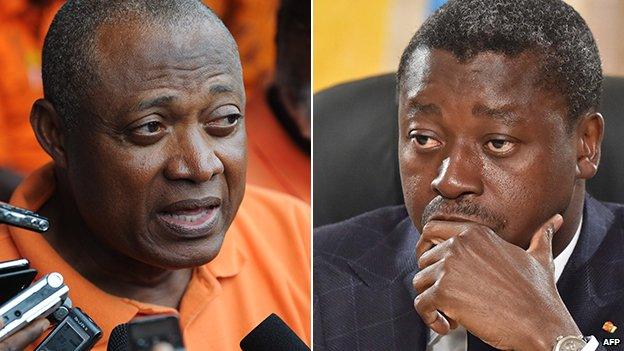
Observers believe the main contest is between President Faure Gnassingbe (r) and Jean-Pierre Fabre (l)
President Faure Gnassingbe is looking to continue his family's 48-year rule of Togo in elections on Saturday, 10 years after violence marred the handover of power from his father.
Although still seen as the favourite, he may face a bigger challenge than in the past.

Who are the main candidates?
• Faure Gnassingbe (Union for the Republic, external)
Faure Gnassingbe, 48, has been in power since his father Gnassingbe Eyadema died in office in 2005 after ruling Togo with an iron fist for 38 years.
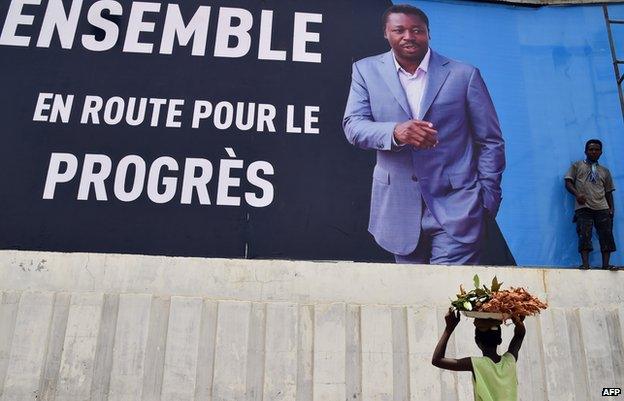
With Faure Gnassingbe, Togo is "on the way to progress", according to his posters
His campaign has been stressing Togo's recent respectable economic record, as well as his government's extensive infrastructure projects, especially road construction.
• Jean-Pierre Fabre (Combat for Political Leadership Change in 2015, external)
An economics graduate and former newspaper editor, Jean-Pierre Fabre started his political career in the opposition movement against Gnassingbe Eyadema, and unsuccessfully stood against Faure Gnassingbe in 2010.
Campaigning at the head of a coalition of opposition parties, he has promised to end what he calls officials' impunity, corruption and disregard for the law, and to use the proceeds of economic growth to reduce widespread unemployment and fund improved public services.
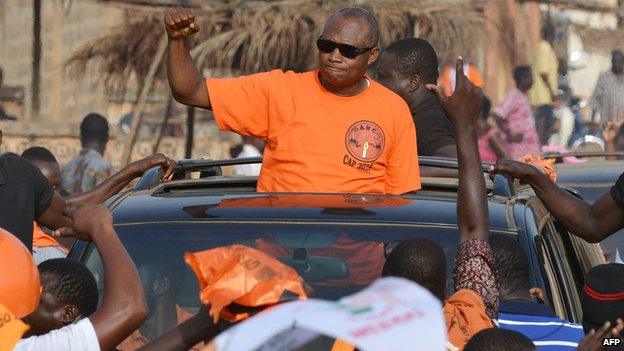
Jean-Pierre Fabre supporters hope he can improve on the 34% of the vote he received in 2010
• Aime Tchaboure Gogue (Alliance of Democrats for Integral Development)
• Gerry Taama (New Togolese Commitment)
• Mouhamed Tchassona Traore (Patriotic Movement for Democracy and Development)

What are their chances?
No opinion polls are published, but most observers think the election will be a two-horse race between Faure Gnassingbe and Jean-Pierre Fabre.
In 2010, official results gave Faure Gnassingbe victory, with 61% of the vote against 34% for Mr Fabre.
Although the president is again the firm favourite, many observers think the result could be closer this time.
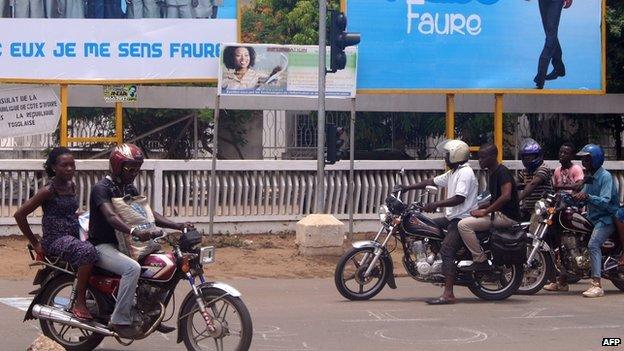
Many young Togolese get by with low-paid jobs or go abroad for work

What are the main issues?
Togo's GDP has more than doubled since 2005 and economic growth reached 5.6% in 2014.
But critics say the benefits have mainly gone to a wealthy minority, while most ordinary Togolese still suffer from high poverty and unemployment rates.
2011 statistics show 58% of the population lived on less than a dollar a day, and while official figures put the jobless rate at 6%, many believe the actual figure is much higher.
Unemployment disproportionately affects the young, who make up a rapidly growing percentage of Togo's population.
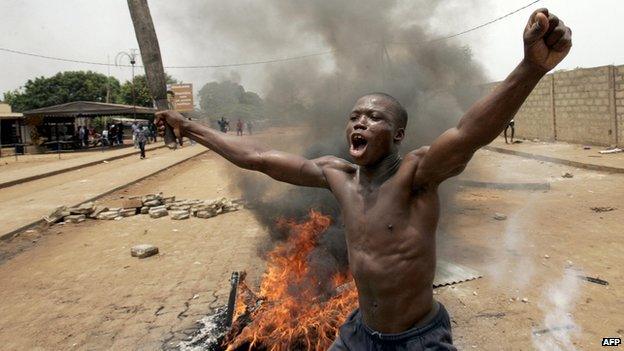
Organisers hope to avoid the violence that flared after the 2005 poll

Is the vote likely to go smoothly?
The 2005 elections were overshadowed by fraud allegations and violent protests which left at least 400 people dead.
Five years later, the opposition unsuccessfully contested official results that handed Mr Gnassingbe a second term, while international observers judged it "acceptable".
Last year, opposition protests failed to bring about constitutional changes limiting the president to two terms in office - a move that would have prevented Mr Gnassingbe from standing.
Western observers see it as encouraging that, so far, the campaign has been peaceful.
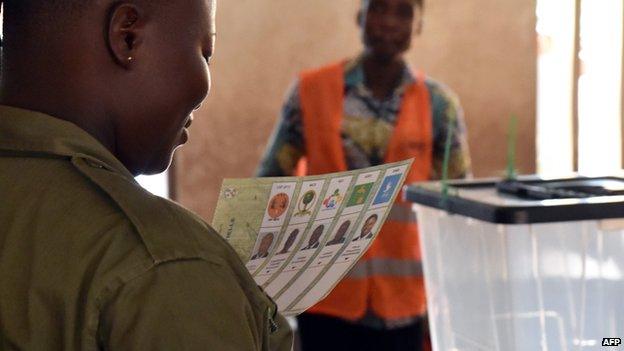
The candidate who comes first in the single round of voting wins.

How does the vote work?
The president of Togo is elected by universal adult suffrage for a five-year term. About 3.5 million people are entitled to vote.
To win, a candidate has to come first among all candidates in a single round of voting; he or she does not need to gain more than 50% of the vote, and there is no second round.
The West African regional bloc Ecowas and the African Union are deploying observers.
The election was postponed from 15 April in response to allegations of irregularities on the electoral register.
BBC Monitoring, external reports and analyses news from TV, radio, web and print media around the world. You can follow BBC Monitoring on Twitter , externaland Facebook, external.